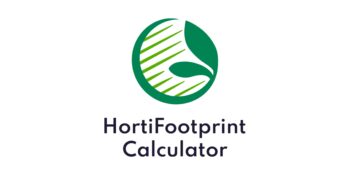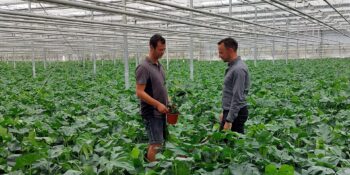The updated MPS-ABC certification standard (v16) will take effect from 1 January 2021. This certification standard meets the requirements for a reliable environmental record-keeping of the Floriculture Sustainability Initiative (FSI).
In addition, the sanctions policy has been adjusted, so that it is more clearly in line with the various criteria in the certification standard and the reliability of the qualifications and certificates has increased. We would like to list the most important changes for you.
Record-keeping on application level of crop protection agents and fertilisers
The current periodically record-keeping, in which the total usage over four weeks is recorded, will be replaced by an application record-keeping for the themes crop protection agents and fertilisers. With this new method of record-keeping, every application of a crop protection agent or a fertiliser, including date and the crop on which it was used, is recorded.
Recording of water usage
A new criterion in the MPS-ABC certification standard is the recording of water usage. In addition to the amount used, the source from which the water is extracted is also recorded.
IPM plan
The new MPS-ABC certification standard requires all participants to have an Integrated Pest Management (IPM) plan. The IPM plan includes a description of pests per crop as well as records of controls and preventive measures carried out. The IPM plan must be transparent to the auditor during a company audit.
More intensive control of admission
Although both the current and the new certification standard must comply with local laws and regulations, with effect from the new certification standard, permissions will be checked more intensively. Where in the current certification standard a sanction follows if an active substance from the MPS Blacklist is used, in the new certification standard a sanction can also be imposed if an active substance used does not comply with the national authorisation.
Closing the chain
When purchasing propagation material, it must be verifiably recorded whether it concerns certified propagation material. The optional module in the record-keeping environment can be used for this. If a personal record-keeping system is used for this, this must be demonstrated during a company audit.
In order to limit the risks that non-certified (end) product is marketed as certified through additional purchase, more attention is being paid to this within the new MPS-ABC certification standard. Purchased products must have at least the same MPS-ABC qualification as the own products.
Audit frequency and sampling
The frequency for audits and sampling is based on a reliability index. The reliability index is a means of assessing the reliability of the recorded data. Factors that influence the reliability index include incomplete and late record-keeping, audit data and samples that deviate from the record-keeping and failure to meet the requirements for additional purchase and contract cultivation. In the case of a highly reliable record-keeping, an audit will be carried out once every three years in combination with an annual sampling. Depending on the score on the reliability index, this can increase to an annual audit and twice a year sampling, the additional costs of which will be at the expense of the participant.
Rent and contract cultivation
With effect from the new MPS-ABC certification standard, stricter supervision will be taken to ensure that rental and contract cultivation locations are included in the record-keeping. Separate subsites are created for rental and contract cultivation locations. Depending on the situation, the usage of up to five contractors can be recorded on one subsite.
Data
What does not change within the new certification standard is the ownership of the data. The participant remains the owner of the recorded data at all times. Although MPS has access to more detailed data with the application record-keeping of crop protection agents and fertilisers, this will only be used as such in the communication to the individual grower. Although MPS does use the data to present total figures for the sector, whether or not specified by region, crop, etc., individual data will never be disclosed as such to other parties.



